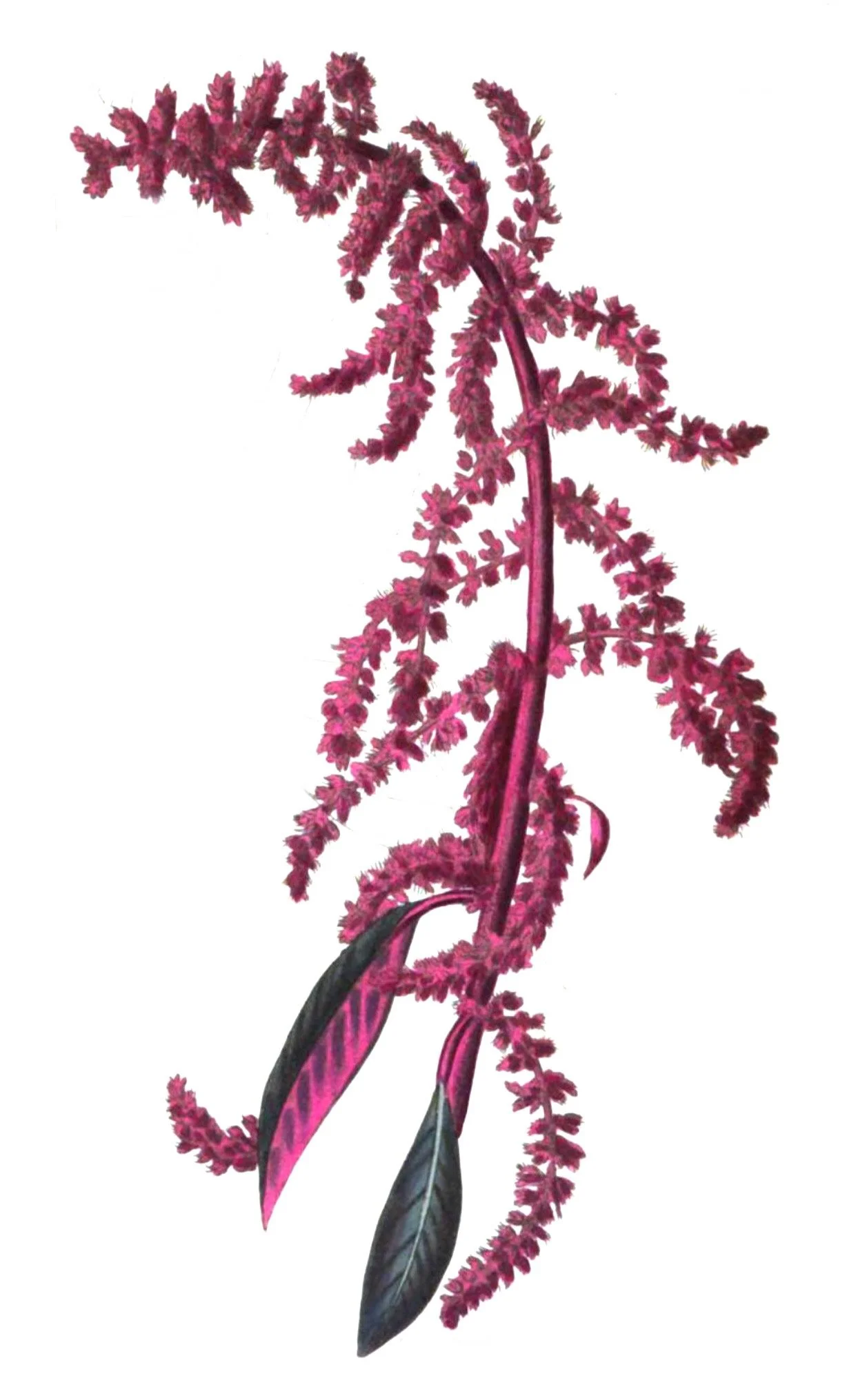Hopi Red Dye
Hopi Red Dye
HOPI RED DYE SEEDS
Amaranthus cruentus x powellii
ORGANIC
An ancient American amaranth bred or selected for use as a food and food coloring. Though in no way historically specific to one single tribe, the Hopi were long one of the few extant peoples in the United States still maintaining this strain, known to them as Komo. Unfortunately, modern iterations of the foods that historically incorporated this amaranth no longer do so. The commercial availability of blue corn seems to have resulted in the near obsolescence of this unique amaranth. It is now more common to cut flower production than food production.
The bracts and seeds of this anthocyanin-rich amaranth are a saturated dark red or purple. The color is soluble in cold water, making it one of the most easily procured natural food dyes in the kitchen. Rubbed bracts and seeds may be soaked overnight in cold water or broth and then combined with cornmeal or masa harina to produce pink bread, wafers, tortillas and tamales. Seeds may also be popped or used to top homemade crackers.
In the garden these plants are attractive, manageable, and suitable for cutting. They prefer to grow in fertile well-drained soils in full sun. In autumn the subtly-drooping heavily-seeded flower heads of Hopi Red Dye are distinctive. Plants are of a shorter stature than more common grain amaranths, topping out around 4' in most gardens. They are ideal for fallscaping. Be sure to give them slightly shorter companions to help disguise their bare legs.
Though these plants seem to have been grown primarily for culinary use in the past, they can also be used to dye fiber with a vinegar or an iron mordant. The resultant colors are wonderfully vivid pinks and wines, but they are not lightfast. Artists more skilled than I will likely know how to coax better results from these plants.
Sow seeds directly into warm garden soil in late spring or early summer, or start indoors around six weeks before transplanting after all danger of frost has passed. Amaranth loves heat and will not appreciate being planted in cold soils.
Packet contains at least 500 seeds.
